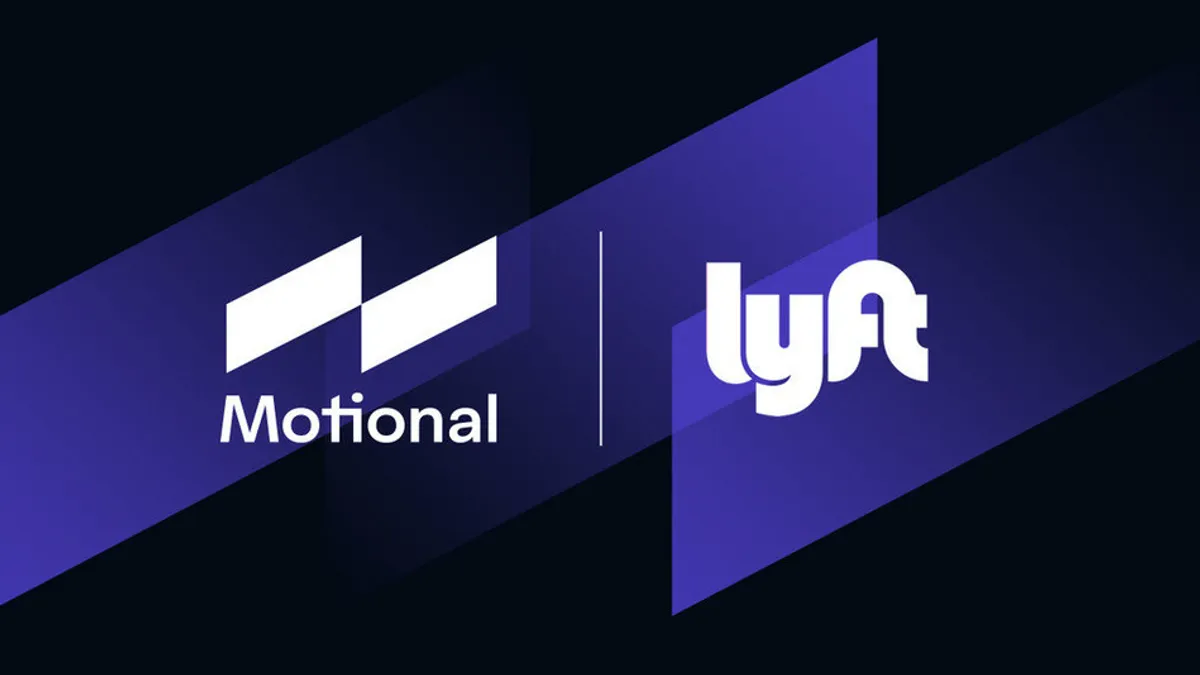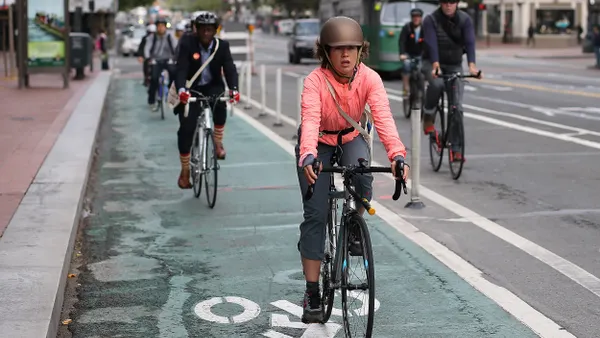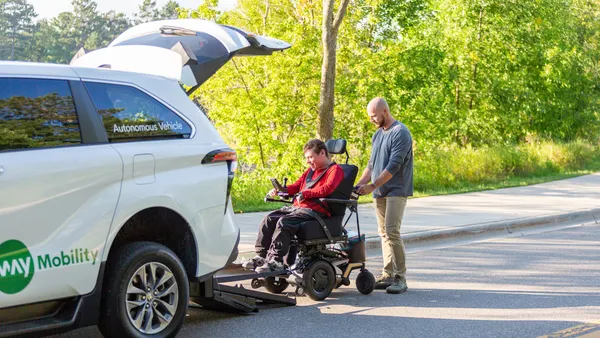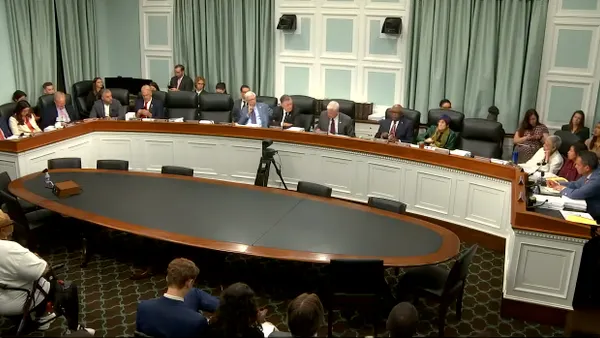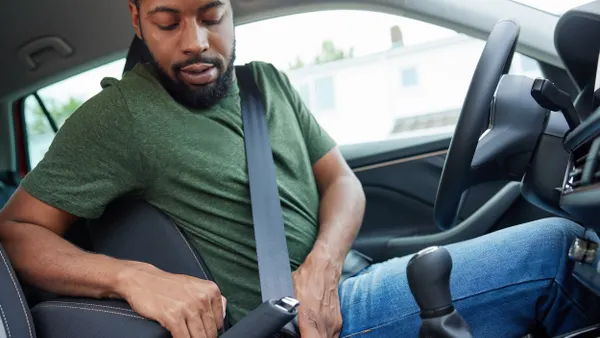Dive Brief:
- Motional and Lyft announced plans on Wednesday to launch a multicity robotaxi service in 2023. Launch markets will be disclosed at a later date, according to the announcement.
- The service will deliver "state-of-the-art, next-generation robotaxis" using Motional-branded Hyundai vehicles equipped with sensors, computers and software for fully-driverless operation. Lyft will power the rideshare network through its app.
- The plans will expand on the partners' current robotaxi service in Las Vegas, which has been in operation since 2018. Motional and Lyft recently resumed this service following a months-long hiatus amid the COVID-19 pandemic, returning with "enhanced protective measures" across its autonomous vehicle (AV) fleet.
Dive Insight:
Motional CEO Karl Iagnemma called the announcement "a fitting close to a year of progress for Motional," pointing to a number of monumental changes throughout 2020. Hyundai Motor Group and Aptiv unveiled the Motional brand for its joint autonomous driving venture in August, which was followed by efforts to increase the reach of its robotaxi service in Las Vegas.
At the time of the rebranding announcement, Motional shared its robotaxi service in Las Vegas had provided over 100,000 rides with a 98% five-star rating. By November, the State of Nevada granted Motional permission to test fully driverless vehicles on public roads, prompting a "rigorous, self-imposed testing and assessment period" in which Motional will complete fully-driverless testing on closed courses in preparation.
The latest announcement from Motional and Lyft shares the spotlight with another major robotaxi announcement this week from competitor Zoox, which gave a sneak peek into its autonomous, fully-electric robotaxi on Monday. Zoox, an Amazon subsidiary, is also testing its AVs in Las Vegas, as well as the San Francisco Bay Area.
While it remains unclear where Motional and Lyft will expand its robotaxi service, Motional has teams across markets including Boston, Pittsburgh and Santa Monica, CA for autonomous tech development. The California Public Utilities Commission approved in November two AV programs that will allow companies to accept compensation on fare-based shared AV trips, making California ripe for robotaxi opportunities.
"Commercializing driverless technology will bring enormous benefits to society," Iagnemma said in a statement, pointing to benefits including more personal time, fewer parking lots and reduced emissions. "And most importantly, we’ll remove human error from many driving scenarios — a step that has the power to save millions of lives."



